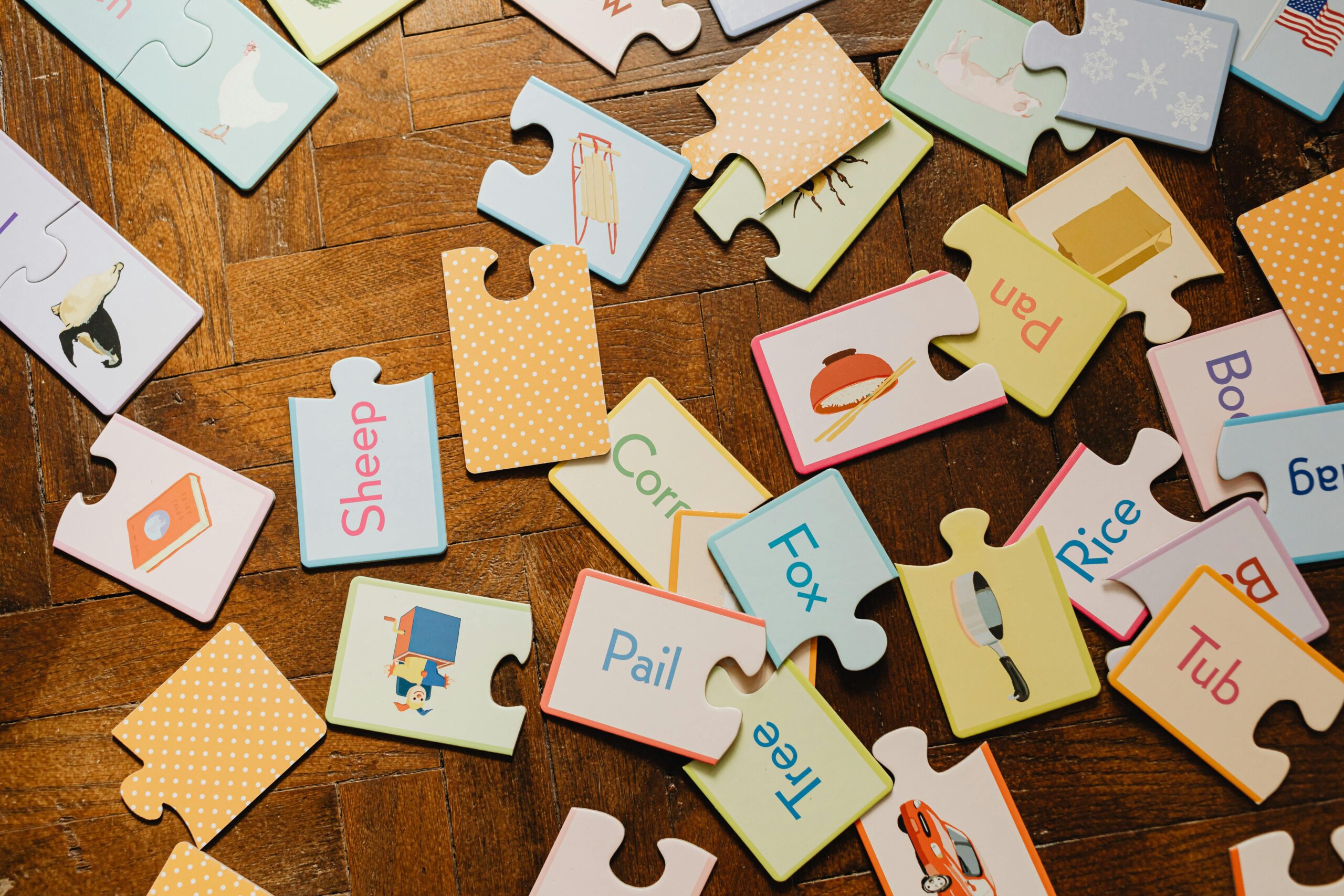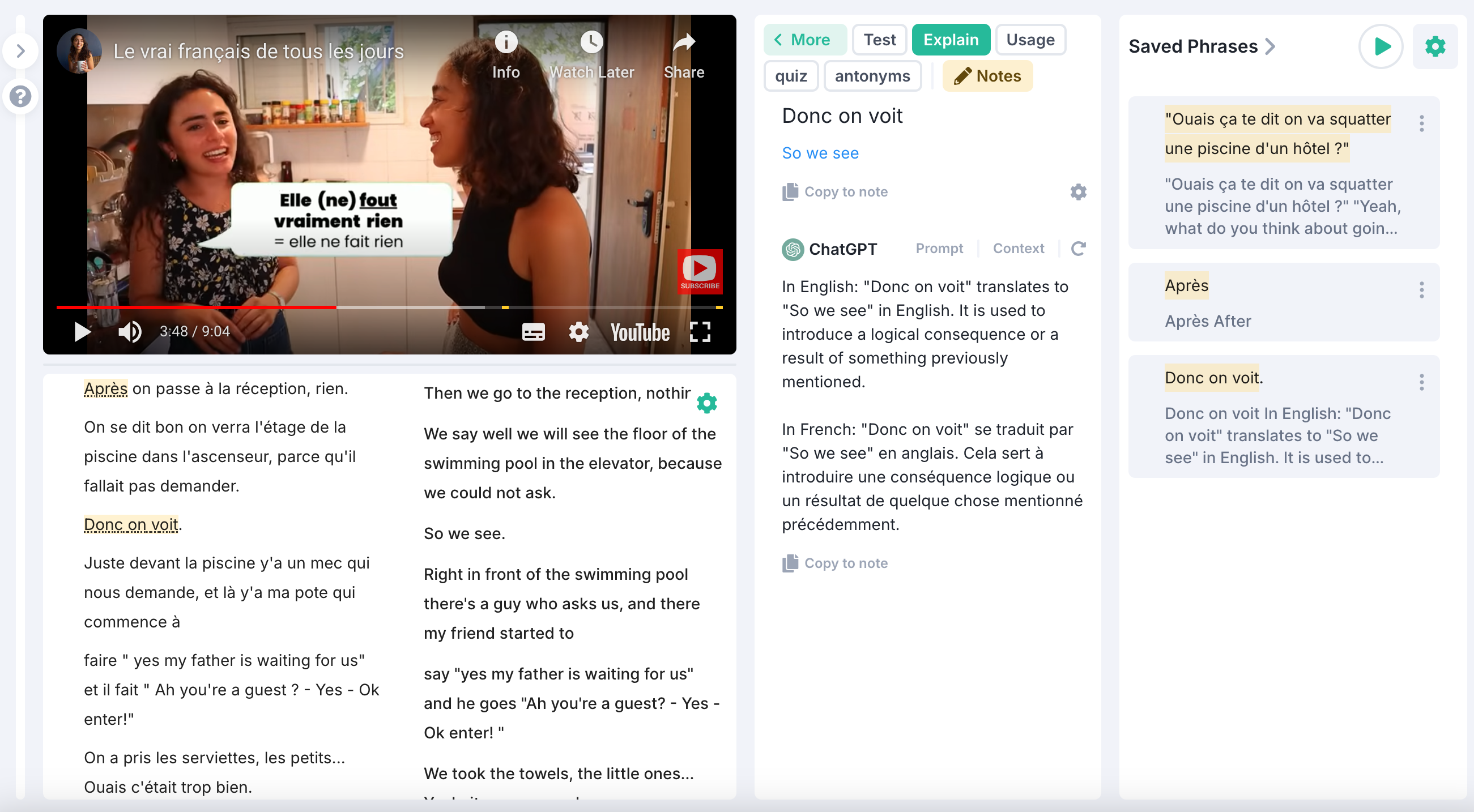The Most Effective Ways to Memorise Vocabulary
Read other articles:
Back to posts
Table of Contents
- 1 The Problem with Traditional Memorisation
- 2 Understanding vs. Memorising: Why Context Is Key
- 3 How to Learn Vocabulary Efficiently
- 4 Personalising Your Vocabulary Learning
- 5 Leveraging Technology for Vocabulary Learning
- 6 Advanced Techniques for Retention
- 7 The Role of Consistency in Vocabulary Learning
- 8 Making Vocabulary Learning Fun
- 9 Final Thoughts: Understanding Leads to Mastery

If you’ve ever sat down with a vocabulary list, painstakingly repeating words over and over, only to forget them days later, you’re not alone. For many language learners, memorising new words feels like an uphill battle. You might even wonder, “Why am I still struggling after all this effort?”
The truth is, vocabulary memorisation often fails because it focuses on short-term retention rather than true understanding. To learn a language effectively, you need more than just rote memorisation—you need connection, context, and strategies backed by research.
In this blog, we’ll dive into the science of how we remember words, explore proven techniques for long-term retention, and show you how to make effective vocabulary learning not just possible, but enjoyable.
The Problem with Traditional Memorisation
When most people think of learning vocabulary, they picture flashcards, vocabulary lists, or endlessly writing the same word down in a notebook. While these methods might feel productive in the moment, they often result in superficial learning.
Why? Because they rely on repetition without context. Words memorised this way exist in isolation, unconnected to meaning or usage. Imagine learning a foreign word like “adventurous” but having no idea how to use it in a sentence or when it’s appropriate. It’s like having a key but no door to unlock.
The Science Behind Forgetting
The problem with traditional memorisation is well-documented in psychology. German researcher Hermann Ebbinghaus developed the Forgetting Curve, which shows how quickly we forget information without reinforcement. According to his findings, we lose about 50% of newly learned information within an hour, and up to 70% within a day.
Does that mean we’re doomed to forget? Not at all. Research also shows that with the right techniques, like spaced repetition and active recall, you can dramatically slow down the forgetting process. These methods reinforce memory at critical intervals, helping you retain words for the long term. So what is effective vocabulary learning or memorising?
Understanding vs. Memorising: Why Context Is Key

Memorising individual words may help you pass a vocabulary test, but it won’t help you become fluent in a language. That’s because real-world language isn’t about knowing isolated words—it’s about understanding how those words interact in context.
What Does It Mean to “Understand” a Word?
True understanding goes beyond definitions. It involves knowing:
- Meaning: What does the word actually signify?
- Usage: How and when is the word used?
- Context: What situations or sentences does the word commonly appear in?
Take the word “adventurous.” Knowing it means “willing to try new things” is a start, but understanding it deeply means you also know how to use it in phrases like, “She has an adventurous spirit” or “He’s feeling adventurous today.”
By understanding words in their natural environment, you create a stronger mental “web” of connections. This is where techniques like contextual learning and sentence mining come in.
How to Learn Vocabulary Efficiently
Step 1: Use Context to Your Advantage
Contextual learning is one of the most effective ways to remember vocabulary. Instead of memorising a word in isolation, try learning it within a sentence or real-world scenario. For example:
- Instead of memorising “serene” as “calm,” learn it in a sentence: “The serene lake reflected the mountains.”
- Watch a movie scene where the word is used to understand its emotional tone.
This approach helps your brain link the word to a richer network of meaning, making it easier to recall later.
Step 2: Try Spaced Repetition
Spaced repetition is a game-changer for vocabulary retention. It involves reviewing words at increasing intervals, just before you’re about to forget them.
Apps like Anki and Quizlet automate this process, making it easy to build consistent review habits. For instance, if you learn the word “meticulous” today, the app will prompt you to review it tomorrow, then again in three days, then in a week.
Spaced repetition mimics the way our brains naturally strengthen memories—through repeated exposure over time.
Step 3: Engage in Active Recall
Rather than passively re-reading words, actively challenge your memory by testing yourself. Active recall forces your brain to retrieve information, strengthening memory pathways.
Here’s how:
- Cover the word’s definition and try to recall it from memory.
- Test yourself on example sentences or synonyms.
- Practice writing your own sentences using the word.
Research shows that testing yourself improves retention more effectively than simply reviewing material.
Personalising Your Vocabulary Learning

Make It Relevant to You
Words are easier to remember when they’re personally meaningful. Instead of random lists, focus on vocabulary that aligns with your interests or goals.
For example:
- If you’re a foodie, learn words like “savory,” “crispy,” or “umami.”
- If you love travel, prioritise words related to directions, culture, or adventure.
Personalising your learning makes it more engaging and increases your motivation.
Use Multiple Senses
Engaging multiple senses enhances memory. This technique, rooted in dual-coding theory, suggests that combining visual and verbal information creates stronger mental associations.
- Pair words with images: Use pictures to represent meanings.
- Listen to the word in songs or podcasts.
- Write the word down and say it out loud.
The more ways you interact with a word, the more likely it is to stick.
Leveraging Technology for Vocabulary Learning

Apps like LangMagic are redefining how we learn vocabulary. By using real-world content, such as YouTube videos, LangMagic creates an immersive learning experience.
Imagine watching your favourite cooking show in Spanish. With LangMagic, you can follow along with interactive transcripts, get instant translations, and save key phrases for review. This contextual approach helps you learn vocabulary naturally while staying engaged with content you enjoy.
LangMagic’s Audio-Podcast Feature
LangMagic also offers an audio-podcast feature designed to help you retain vocabulary and class content between lessons. After each class, the platform generates a personalised audio summary of key vocabulary and phrases you’ve learned.
This feature allows you to:
- Review words passively during commutes or workouts.
- Hear vocabulary in context, strengthening your ability to recall and use it later.
- Maintain consistency between classes by revisiting important material in an engaging format.
By blending real-life audio content with AI technology, LangMagic helps you internalise vocabulary efficiently, without feeling like you’re cramming.
Advanced Techniques for Retention
Sentence Mining
One of the most effective techniques is sentence mining. Instead of learning individual words, memorise entire sentences.
For example:
- Rather than learning “innovative,” memorise: “The company developed an innovative solution to the problem.”
This method helps you learn grammar, context, and nuances all at once. Plus, it’s more engaging than static word lists.
Mnemonic Devices
Mnemonics are memory aids that link new information to familiar concepts. For example:
- To remember the Spanish word “gato” (cat), imagine a cat wearing a “giant” hat.
By associating words with vivid images or stories, mnemonics make them more memorable.
The Role of Consistency in Vocabulary Learning
Vocabulary acquisition isn’t about cramming—it’s about building consistent habits. Studying for 15–20 minutes daily is more effective than long, infrequent sessions.
To stay consistent:
- Set daily goals, like learning five new words.
- Incorporate learning into your routine, such as reviewing flashcards during your commute.
- Track your progress to stay motivated.
Making Vocabulary Learning Fun

Immerse Yourself in Content You Love
The best way to learn vocabulary is to engage with content that excites you. Whether it’s a podcast, TV series, or novel, immersion helps you absorb words effortlessly.
Play Language Games
Gamified apps, crossword puzzles, and word association games can turn vocabulary learning into a fun challenge. Even simple games like Scrabble or Boggle can boost your word knowledge.
Final Thoughts: Understanding Leads to Mastery
Vocabulary learning doesn’t have to feel like a chore. By shifting your focus from memorisation to understanding, you can create a more effective and enjoyable learning experience.
Try out strategies like contextual learning, spaced repetition, and sentence mining. Use technology like LangMagic’s interactive features and audio-podcasts to personalise your journey and keep things engaging. Most importantly find out what does “effective vocabulary learning” means to you. And, remember that learning is a process—be patient with yourself and celebrate your progress.
Learning a language is an adventure—make it one that’s meaningful and fun!
Read other articles:
Back to posts
